Responsible gaming
Welcome to our online gaming community! We encourage all South African players to game responsibly. Remember, online gaming is for entertainment, so it's crucial to keep your play under control. Be mindful of the money and time you invest, and only wager what you can afford to lose. We're committed to a responsible environment for all our players, adhering to industry standards for safety and well-being.
Understanding Responsible Gambling in South Africa
Responsible gambling means ensuring your betting remains fun and controlled, without the negative impacts of excessive play. It's a team effort involving various parties:
- Players: You, the player, must own your gambling habits. Make smart choices, set your own limits, and don't hesitate to ask for help if you need it.
- The Gambling Industry: Casinos have a duty to promote fair and responsible gaming. This includes providing tools for you to manage your play, such as deposit limits, self-exclusion options, and clear information on the risks.
- Governments and Regulators: South African authorities set the rules to protect players, fund support services, and raise awareness about the potential risks of gambling.
Together, these players work to create a safe gambling environment, minimising risks and offering support where needed.
Spotting the Red Flags: Problem Gambling
Online casinos can be a lot of fun, but it's vital to be aware of the risks. Problem gambling often creeps up slowly and can go unnoticed until serious issues arise. Keep an eye out for these signs in yourself or someone you care about:
- Constant Obsession with Gambling:
Are you thinking about gambling all the time, planning your next session, or reliving past wins? If it's taking over your thoughts, it might be a problem. - Betting Bigger for the Same Thrill:
Do you need to wager more money to feel that same excitement? This suggests you're building a tolerance, which can lead to bigger risks. - Failed Attempts to Quit:
Have you tried to cut back or stop gambling, only to find yourself unable to? Breaking promises to yourself or others about quitting is a serious warning sign. - Using Gambling to Escape:
Do you turn to gambling to avoid dealing with stress, problems, or negative feelings? This can worsen existing issues. - Chasing Those Losses:
Have you gambled more in an attempt to win back what you've lost? This can quickly lead to a cycle of bigger losses and desperation. - Hiding Your Gambling:
Do you lie to friends and family about your gambling, or keep it a secret? Secrecy often signals shame or guilt, which are red flags. - Neglecting Duties and Relationships:
Have your gambling habits led you to ignore important relationships, work, or studies? When gambling starts affecting daily life, it's time to act. - Borrowing or Selling to Fund Gambling:
Have you resorted to borrowing money or selling your belongings to keep gambling? This can lead to serious financial trouble. - Feeling Restless or Irritable When Not Gambling:
Do you experience anxiety or irritation when you can't gamble? This suggests a dependency on gambling to feel normal or at ease.
If you or someone you know is experiencing any of these signs, it's essential to seek help. Problem gambling is a serious issue, but with the right support and resources, it can be managed.
Prevention and Management Strategies
Responsible gambling is about maintaining control and ensuring that gambling remains a fun and manageable activity. Here are some key strategies to help you manage your gambling habits effectively:
1. Money Management Techniques
One of the most effective ways to keep gambling within safe limits is to manage your money wisely. Setting a budget before you start gambling ensures that you only spend what you can afford to lose. This budget should cover all your necessary expenses first, with a specific amount allocated for gambling that you are comfortable parting with. Many online casinos offer tools to help you set deposit limits, which restrict the amount of money you can add to your account over a certain period. Utilizing these tools can prevent overspending and help you stick to your budget.
2. Expectation Management and Understanding the Odds
It’s crucial to have realistic expectations when gambling. Understanding that the odds are always in favor of the house can help you avoid gambling based on the false hope of a big win. Casino games are designed to be unpredictable, and no amount of play will guarantee a win. By recognizing this, you can approach gambling as a form of entertainment rather than a way to make money. Knowing the odds and understanding that losses are a natural part of gambling can help you manage your expectations and avoid the emotional rollercoaster that comes with unrealistic hopes.
3. Knowing When to Stop and Using Self-Exclusion Tools
Recognizing when to stop is a key component of responsible gambling. If you find yourself chasing losses or spending more time and money than intended, it might be time to take a break. Many online platforms offer self-exclusion tools that allow you to take a temporary or permanent break from gambling. These tools can help prevent further harm by restricting your access to gambling sites for a set period, giving you time to reassess your habits and seek help if necessary.
By implementing these strategies, you can maintain control over your gambling activities and ensure that they remain a source of enjoyment rather than a cause of stress or financial hardship.
Setting Limits and Self-Exclusion Options in Live Casinos
Live casinos are implementing various responsible gambling features to empower players to set limits and control their gambling activities. These features include:
- Deposit limits: Live casinos allow players to set daily, weekly, or monthly deposit limits. Once the limit is reached, players are unable to deposit more until the specified period elapses.
- Loss limits: Loss limits cap the amount of money a player can lose within a specific timeframe. Once the limit is reached, players are prevented from further gambling until the set period expires.
- Session time limits: Players can set session time limits to control the duration of their gambling sessions. Once the time limit is reached, players are automatically logged out of the Live casino.
- Self-exclusion: Self-exclusion is an essential responsible gambling feature that allows players to voluntarily exclude themselves from a Live casino for a certain period or indefinitely. During the self-exclusion period, players are unable to access their accounts and engage in gambling activities.
These features serve as valuable tools for players to manage their gambling habits and maintain control over their activities. Utilizing them can help prevent excessive gambling and promote responsible behavior.
Support and Help Resources
If you or someone you know is struggling with problem gambling, it's important to seek help as soon as possible. There are many resources available that provide support, counseling, and advice for individuals affected by gambling addiction. Below is a list of key organizations and services that can offer assistance:
| Service/Organization | Website | Phone Number | Description |
|---|---|---|---|
| National Council on Problem Gambling (NCPG) | ncpgambling.org | +1-800-522-4700 | Provides confidential support via helpline, chat, and text for individuals and families affected by problem gambling. |
| Gamblers Anonymous | gamblersanonymous.org | Contact via local listings | A fellowship of men and women who share their experience to help each other recover from gambling addiction. |
| Gam-Anon | gam-anon.org | Contact via local listings | A support group for family members and friends of problem gamblers. Meetings available worldwide. |
| American Addiction Centers | americanaddictioncenters.org | +1-866-210-1303 | Offers a wide range of addiction treatment services, including specialized programs for gambling addiction. |
| Gambling Therapy | gamblingtherapy.org | Online support | Provides free online support and resources for anyone affected by problem gambling, available worldwide. |
| Substance Abuse and Mental Health Services Administration (SAMHSA) | samhsa.gov | +1-800-662-HELP (4357) | A confidential, free helpline for individuals facing mental and/or substance use disorders, including problem gambling. |
| 800-GAMBLER | 800gambler.org | +1-800-GAMBLER (426-2537) | A confidential, 24/7 helpline for individuals struggling with gambling addiction, particularly in New Jersey. |
| ConnexOntario | connexontario.ca | +1-866-531-2600 | Provides free and confidential health services related to problem gambling, mental health, and substance abuse in Ontario. |
| Gambling Help Online (Australia) | gamblinghelponline.org.au | 1800 858 858 | A national online support and counseling service for individuals affected by gambling in Australia. |
| Centre for Addiction and Mental Health (CAMH) | camh.ca | +1-800-463-2338 | Canada’s largest mental health teaching hospital offering resources and treatment for gambling addiction. |
| Gamban | gamban.com | N/A | Provides software to block access to online gambling sites and apps on your devices. |
This table can be a valuable resource for individuals seeking help or guidance in managing gambling-related issues, offering a range of services from various organizations across different regions.
Responsible Gambling Tools
To help you stay in control and ensure that gambling remains a source of enjoyment, online casinos provide various tools designed to promote responsible gambling. Here’s a breakdown of some of the most useful tools available:
📊 Tracking Your Gambling Activity
Many online casinos offer tools that allow you to view a detailed history of your gambling activities, including bets, wins, and losses. Regularly checking this data helps you stay aware of your spending and recognize patterns that might suggest it's time to take a break. If you’re unsure where to find this feature, check your account settings or reach out to customer support.
⏰ Session Reminders
Session reminders are a simple but effective way to keep track of time while gambling. These reminders pop up after you’ve been playing for a certain period, helping you monitor your gaming sessions and encouraging regular breaks. This feature is especially helpful for avoiding long, uninterrupted gambling sessions.
💰 Setting Personal Limits
Stay within your budget by setting personal limits on how much you can deposit, wager, or lose over a specific time frame. These limits are flexible, allowing you to adjust them based on your financial situation and gaming habits. They serve as a built-in safeguard to prevent overspending and keep your gambling fun and stress-free.
🧠 Self-Assessment Quizzes
Online self-assessment quizzes are a quick and easy way to check if your gambling habits are within a healthy range. By answering a few questions about your behavior, you can gain insight into whether you might be at risk for problem gambling and decide if further steps are needed.
🚫 Payment Blocking
Some financial institutions and apps offer services to block payments to and from gambling websites. This feature can help you take a break from gambling by removing the temptation to make deposits. It’s a useful tool for those who are trying to reduce or stop their gambling activities.
🔒 Self-Exclusion Programs
If you need a more extended break from gambling, self-exclusion programs are an excellent option. These programs allow you to voluntarily block access to your gambling accounts for a period of time, whether that’s a few months or permanently. It’s an effective way to take control and focus on other priorities in your life.





